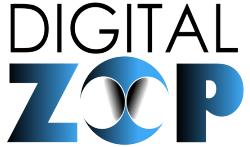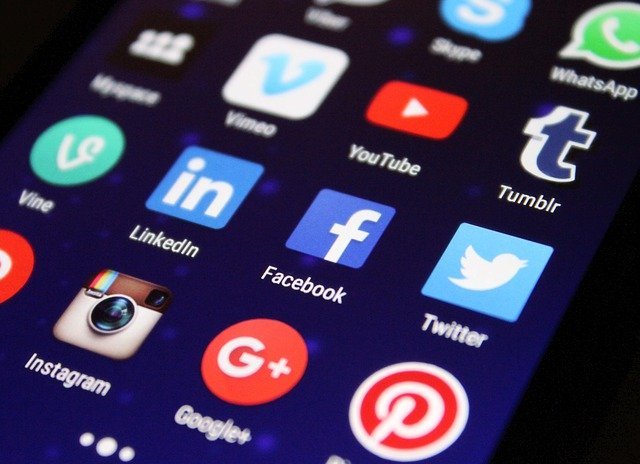Is Facebook Good for Business Marketing? An In-Depth Look
Facebook, with over 2.8 billion monthly active users, is the largest social media platform in the world. For businesses, this presents an enormous opportunity to reach a wide audience, promote their products or services, and drive sales. However, as with any marketing strategy, it’s important to consider whether or not Facebook is the right platform for your business. In this article, we will explore the various aspects of Facebook marketing and how it can benefit your business.
What is Facebook’s Marketing?
Facebook marketing is the process of using the Facebook platform to promote your business, products, or services. This can be done through a variety of different methods, including:
- Creating a Facebook business page: A dedicated page for your business where you can post updates, share content, and connect with your audience.
- Running Facebook ads: Sponsored posts that appear in the newsfeed of users.
- Using Facebook groups: Connecting with like-minded people and promoting your business.
- Facebook Live: Live-streaming video content to your audience.
- Facebook Stories: Short, ephemeral videos that appear at the top of the newsfeed.
- Facebook Messenger: Connecting with customers and providing customer service.
One of the key advantages of Facebook marketing is its ability to target specific demographics, interests, and behaviors. This allows businesses to reach a highly targeted audience and increase the chances of conversion. Additionally, Facebook provides detailed analytics that allows businesses to track the performance of their ads and adjust their strategy accordingly.
How to Start a Facebook Marketing Campaign
Starting a Facebook marketing campaign is relatively simple and straightforward. The first step is to create a Facebook business page. This can be done by visiting the “Create” section on Facebook and selecting “Page.” Once you have created your business page, you can then start running Facebook ads.
When creating your ads, you will need to consider the following:
- Ad format: Facebook offers several ad formats, including photo, video, carousel, and slideshow ads.
- Ad targeting: Who do you want to reach with your ad? Facebook allows you to target specific demographics, interests, and behaviors.
- Ad budget: How much are you willing to spend on your ad campaign?
It’s important to note that running Facebook ads is not free. However, the cost of Facebook ads can vary depending on the type of ad you choose to run and your advertising budget. On average, the cost per click for Facebook ads is around $1.72, and the cost per thousand impressions is around $11.20.
Is Facebook Marketing Free?
While creating a Facebook business page and posting updates is free, running Facebook ads is not. However, the cost of Facebook ads can vary depending on the type of ad you choose to run and your advertising budget. Additionally, businesses can use other features such as Facebook groups, Facebook live, Facebook stories, and Facebook messenger for free.
Benefits of Facebook Marketing.
- Reach a Large Audience: With over 2.8 billion monthly active users, Facebook offers businesses the opportunity to reach a large audience.
- Targeted Advertising: Facebook’s targeting options allow you to reach specific demographics, interests, and behaviors.
- Cost-Effective: Facebook ads are relatively inexpensive compared to traditional forms of advertising.
- Measurable Results: Facebook provides detailed analytics that allows you to track the performance of your ads and adjust your strategy accordingly.
- Increased Brand Awareness: A strong presence on Facebook can increase brand awareness and drive more traffic to your website.
- Increased Engagement: Facebook allows
businesses to interact and engage with their audience, which can lead to increased customer loyalty and positive brand sentiment.
- Increased Sales: By reaching a targeted audience and increasing brand awareness, Facebook marketing can ultimately lead to an increase in sales for your business.
- Access to Detailed Analytics: Facebook provides detailed analytics that allows businesses to track the performance of their ads and adjust their strategy accordingly. This can help businesses to optimize their campaigns for better results.
- Variety of Ad Formats: Facebook offers a variety of ad formats such as photo, video, carousel, and slideshow ads. This allows businesses to choose the ad format that best suits their goals and budget.
- Greater Visibility: Facebook’s algorithm is designed to show ads to the users who are most likely to engage with them. This can help businesses to increase their visibility and reach a wider audience.
Types of Facebook Marketing
- Organic Facebook Marketing: This is the process of creating a Facebook business page and posting updates, sharing content, and connecting with your audience without running paid ads.
- Paid Facebook Marketing: This is the process of running Facebook ads to promote your business, products or services.
- Influencer Marketing: This is the process of partnering with social media influencers to promote your business, products or services.
- Live Video Marketing: This is the process of using Facebook Live to live-stream video content to your audience.
- Facebook Messenger Marketing: This is the process of using Facebook Messenger to connect with customers and provide customer service.
How Much do FB Ads Cost?
The cost of Facebook ads can vary depending on the type of ad you choose to run and your advertising budget. On average, the cost per click for Facebook ads is around $1.72, and the cost per thousand impressions is around $11.20. However, it’s important to note that these are just averages and the cost can vary greatly depending on the industry and targeting options you choose.
Additionally, businesses can use Facebook’s targeting options to reach specific demographics, such as age, gender, location, interests, and behaviors. This allows businesses to tailor their messaging and content to the specific audience they are trying to reach, which can increase the chances of conversion.
Facebook also allows businesses to run A/B testing on their ads, which can help to optimize their campaigns for better results. By testing different versions of an ad, businesses can determine which version is performing the best and make adjustments accordingly. This can help to improve the overall performance of the campaign and increase the return on investment.
Another advantage of Facebook marketing is the ability to retarget users who have previously engaged with your business. Retargeting ads are shown to users who have previously visited your website or engaged with your Facebook page. This allows businesses to remind users of their products or services and increase the chances of conversion.
Businesses can also use Facebook’s lead generation and conversion tracking features to track the performance of their ads and measure the success of their campaigns. By tracking the number of leads or conversions generated from an ad, businesses can determine the effectiveness of their campaigns and make adjustments as needed.
In terms of cost, Facebook’s advertising platform is relatively affordable compared to other online advertising platforms. Businesses can set a daily or lifetime budget for their ads and choose from a variety of pricing options such as cost per click, cost per thousand impressions, or cost per action. This allows businesses to choose the pricing option that best suits their budget and advertising goals.
However, it’s important to note that while Facebook can be an effective marketing tool, it’s not the right fit for every business. It’s essential for businesses to conduct research and consider their target audience, budget, and advertising goals before committing to a Facebook marketing campaign.
In conclusion
Facebook is a powerful tool for business marketing, with its vast user base, targeting options, and detailed analytics. It provides businesses with a variety of advertising options, retargeting features, lead generation, and conversion tracking features. However, it’s important for businesses to determine whether or not Facebook is the right platform for them, and to conduct research and consider their target audience, budget, and advertising goals before committing to a Facebook marketing campaign.
FAQ:
Q: How do I start a Facebook marketing campaign?
A: To start a Facebook marketing campaign, you will need to create a Facebook business page, create and publish engaging content, and set up a Facebook advertising account. From there, you can create and launch your ad campaigns, targeting specific demographics and interests.
Q: Is Facebook marketing free?
A: While creating a Facebook business page and publishing content is free, advertising on Facebook does come with a cost. Businesses can choose from a variety of pricing options such as cost per click, cost per thousand impressions, or cost per action.
Q: What are the types of Facebook marketing?
A: Some types of Facebook marketing include:
- Sponsored posts
- Sponsored Stories
- Facebook Ads (display ads, carousel ads, video ads, etc.)
- Retargeting Ads
- Lead Generation Ads
Q: What are the benefits of Facebook marketing?
A: Some benefits of Facebook marketing include:
- The ability to reach a large, highly targeted audience
- Detailed analytics and tracking capabilities
- A/B testing to optimize campaigns
- Retargeting to reach users who have previously engaged with your business
- Lead generation and conversion tracking to measure the success of campaigns
Q: How much do FB ads cost?
A: The cost of Facebook ads varies depending on the pricing option you choose and the competition for ad space. Businesses can set a daily or lifetime budget for their ads and choose from a variety of pricing options such as cost per click, cost per thousand impressions, or cost per action.



